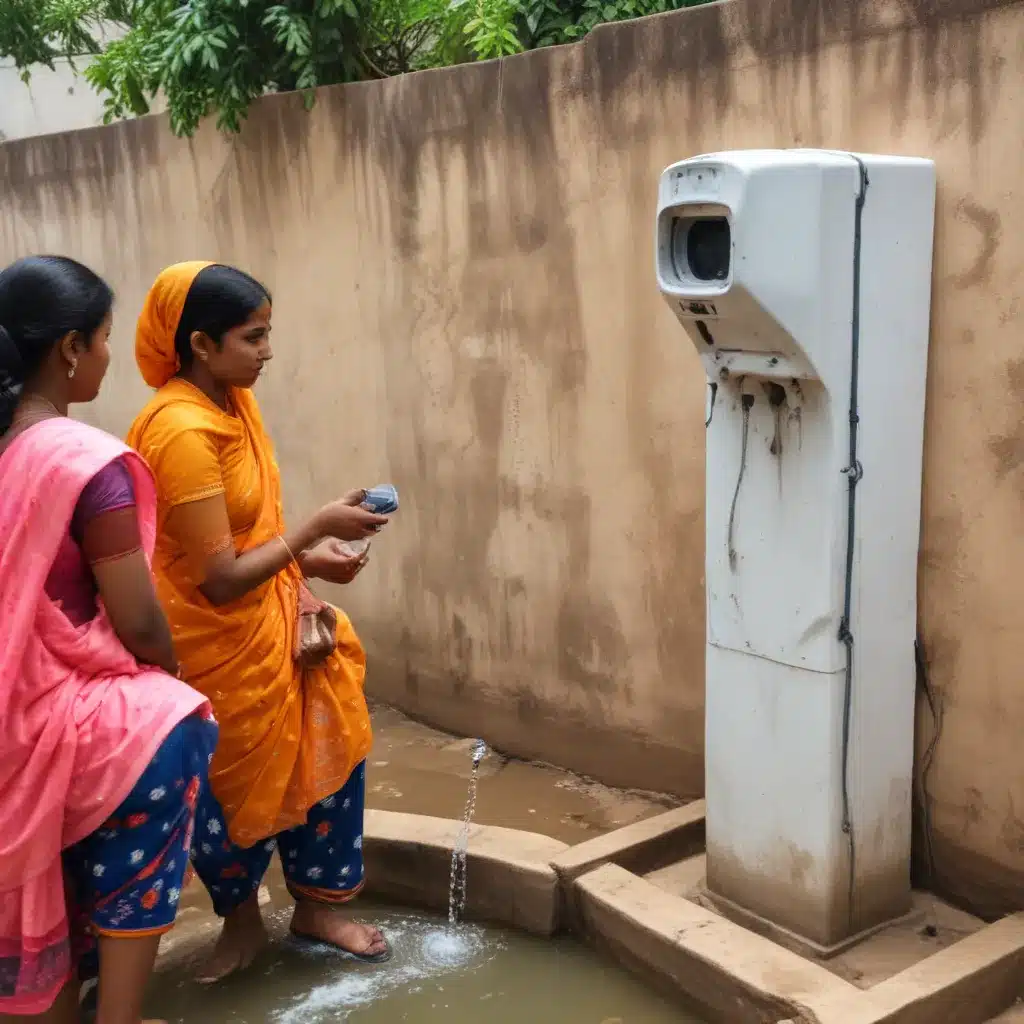
Leveraging Digital Technologies for Real-Time Monitoring and Improved Decision-Making in WASH Service Delivery in Hyderabad
Harnessing the Power of IoT, Edge Intelligence, 5G, and Blockchain for Effective Water and Sanitation Management
In the bustling city of Hyderabad, efficient and equitable water and sanitation (WASH) service delivery is a critical challenge that requires innovative solutions. As the population continues to grow, the demand for reliable access to clean water and proper sanitation facilities has become increasingly pressing. Fortunately, the rapid advancements in digital technologies offer a promising path forward, empowering local authorities and communities to enhance WASH service delivery through real-time monitoring and data-driven decision-making.
Integrating the Internet of Things (IoT) for Comprehensive Monitoring
At the heart of this technological transformation lies the Internet of Things (IoT), a network of interconnected devices that can collect, analyze, and transmit data in real-time. By deploying IoT sensors throughout the WASH infrastructure in Hyderabad, local authorities can continuously monitor key parameters such as water quality, flow rates, and infrastructure conditions. This granular, real-time data provides invaluable insights, enabling proactive maintenance, early detection of issues, and targeted interventions to address service gaps.
For example, IoT-enabled water quality sensors can continuously monitor the levels of contaminants, pH, and other critical indicators in the water supply. This information can be instantly relayed to a central command center, allowing immediate response to any deviations from acceptable thresholds. Similarly, IoT-equipped sanitation facilities can track usage patterns, identify maintenance needs, and alert authorities to potential blockages or malfunctions.
Leveraging Edge Intelligence for Rapid Decision-Making
While the IoT network collects a wealth of data, the sheer volume and complexity of this information can be overwhelming. This is where edge intelligence (EI) comes into play. EI empowers local devices and gateways to process and analyze data at the edge of the network, close to the source of data generation. By decentralizing the computational power, EI enables rapid decision-making and immediate response, rather than relying on a centralized cloud-based system.
In the context of WASH service delivery, EI can be used to automatically detect anomalies, trigger alerts, and initiate appropriate actions without delay. For instance, if an IoT sensor detects a sudden drop in water pressure, the local EI system can immediately notify the maintenance team, dispatch a technician to the site, and even reroute water supply to maintain service continuity – all within seconds, without the need for manual intervention.
Unlocking the Potential of 5G for Real-Time Connectivity
The rollout of 5G technology in Hyderabad further enhances the capabilities of the IoT-EI ecosystem. 5G’s ultra-fast data speeds, low latency, and increased bandwidth enable the seamless transmission of large volumes of sensor data, facilitating real-time monitoring and decision-making. With 5G, IoT devices can continuously transmit high-quality video feeds from critical infrastructure, enabling remote visual inspections and rapid identification of issues.
For instance, 5G-enabled cameras installed at water treatment plants can provide live footage of the treatment process, allowing operators to closely monitor for any irregularities. Similarly, 5G-powered drones can conduct aerial surveys of the city’s water distribution network, identifying leaks, blockages, or encroachments that may impede service delivery.
Harnessing Blockchain for Secure and Transparent Data Management
To ensure the integrity and reliability of the WASH data generated by the IoT-EI-5G ecosystem, blockchain technology can play a crucial role. Blockchain’s decentralized, tamper-proof nature can provide a secure and transparent platform for recording and sharing WASH-related information among various stakeholders, including local authorities, service providers, and community members.
By leveraging blockchain, WASH data can be recorded in an immutable, distributed ledger, ensuring its authenticity and traceability. This enhanced transparency can build trust, facilitate accountability, and enable seamless collaboration among stakeholders. For example, community members can access real-time information on water quality and service availability, empowering them to hold service providers accountable and make informed decisions.
Driving Sustainability and Equity through Data-Driven Decisions
The integration of IoT, edge intelligence, 5G, and blockchain in Hyderabad’s WASH sector can have a transformative impact on service delivery and sustainability. By equipping local authorities with real-time, reliable data, these digital technologies can inform evidence-based decision-making, leading to more efficient resource allocation, proactive maintenance, and targeted interventions.
For instance, IoT-enabled monitoring can help identify areas with persistent water shortages or sanitation issues, allowing authorities to prioritize infrastructure upgrades and service expansions in underserved communities. Blockchain-backed data can also facilitate equitable water distribution, ensuring that marginalized groups have fair access to clean water and sanitation facilities.
Moreover, the data generated by this integrated system can support long-term planning and policy development, enabling local authorities to anticipate future challenges, optimize resource utilization, and implement sustainable WASH strategies. By leveraging these cutting-edge technologies, Hyderabad can pave the way for a more resilient, inclusive, and environmentally responsible water and sanitation ecosystem.
Overcoming Challenges and Fostering Collaboration
Transitioning to this digitally-enabled WASH service delivery model in Hyderabad is not without its challenges. Aspects such as infrastructure integration, data governance, and stakeholder coordination require careful planning and execution. Establishing robust cybersecurity measures to protect the sensitive WASH data is also a critical priority.
To address these challenges, a collaborative approach involving local authorities, service providers, technology companies, and community organizations is essential. By fostering strong partnerships and aligning on common goals, Hyderabad can leverage the synergies between these diverse stakeholders to co-create innovative solutions and overcome any implementation hurdles.
A Vision for the Future of WASH in Hyderabad
As Hyderabad embraces the power of digital technologies, the city’s water and sanitation landscape is poised for a transformative change. By integrating IoT, edge intelligence, 5G, and blockchain, local authorities can gain unprecedented control and visibility over the WASH infrastructure, empowering them to make data-driven decisions that enhance service quality, promote sustainability, and ensure equitable access.
This digitally-enabled WASH system will not only improve the lives of Hyderabad’s residents but also serve as a model for other cities in India and beyond, demonstrating the immense potential of emerging technologies to revolutionize the way we manage our most precious resource – water.

